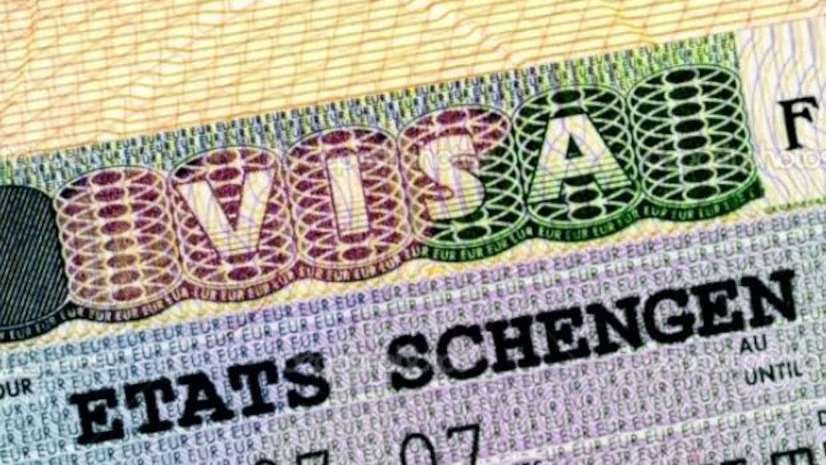
Unlocking New Travel Opportunities for Indians
Indians now have the liberty to explore the picturesque landscapes of Switzerland, Amsterdam, and various other enchanting European destinations for an extended duration of up to two years, thanks to the implementation of favorable Schengen visa regulations.
Exploring Europe Without Constraints
Under the revolutionary cascade regime, individuals of Indian nationality can revel in the charm of Switzerland, Amsterdam, and a plethora of other European countries, including Austria, Hungary, Poland, Belgium, Germany, and France, among others, for an uninterrupted period of up to two years.
Empowering Indian Passport Holders
The European Union’s adoption of accommodating Schengen visa policies for Indian citizens is poised to enhance the prominence of the Indian passport, granting seamless access to 29 European countries and facilitating hassle-free travel experiences.
Global Passport Rankings
According to the latest Henley Passport Index for 2024, the Indian passport holds a ranking of 85, underscoring its strengthening global standing. In comparison, neighboring countries such as Pakistan and Bangladesh are ranked at 106 and 102, respectively.
Extended Visa Privileges
Under the revamped Schengen visa regime, Indian travelers can now embark on multiple visits to European countries over a span of two years, with the option of extending their stay for an additional five years, akin to visa-exempt nationals.
Breaking Away from Tradition
This monumental shift marks a departure from conventional practices. Previously, Indian travelers were obligated to apply for the coveted Schengen visa, typically granted for a maximum duration of three months.
Seamless Travel Experiences
Now, under the cascade regime, individuals can luxuriate in the beauty of Switzerland, Amsterdam, and an array of European destinations for up to two years, with the possibility of extending their stay, devoid of any impediments.
Augmented Travel Trends
According to a report published in August 2023, the Scandinavian region in Europe witnessed a remarkable surge of 140 percent in travel activities compared to pre-COVID levels in 2020, as per insights from MakeMyTrip.
Facilitating Frequent Travelers
This paradigm shift in visa regulations primarily benefits frequent Indian travelers to Europe. Eligibility for the new visa category, ‘cascade regime,’ is extended to individuals who have visited Europe on a Schengen visa at least twice within the past three years.
Travel Freedom with Limitations
However, it’s imperative to note that visa holders under this category are prohibited from engaging in employment or generating income akin to local citizens during their stay.
Visa Extension Dynamics
Following the initial two-year visa, individuals may qualify for a subsequent five-year visa, contingent upon the validity of their passport. Notably, if the passport’s expiration date falls within three years, the option for a five-year visa extension may be constrained.
Strategic Diplomatic Alliances
This significant stride in Schengen visa policies underscores the burgeoning partnership between Europe and India. Notably, France exemplified its commitment by easing visa regulations for Indian students, offering a five-year post-study visa to master’s degree graduates during Prime Minister Narendra Modi’s visit in July 2023.
Transitioning Work Opportunities
Previously, Indian students completing their master’s degree in France were granted a two-year work visa. However, this progressive move now extends greater career prospects and stability with a five-year post-study visa.
FAQs
Can Indians Stay in Europe for Long Durations Without a Visa? Indians can typically visit Europe for short durations without a visa, but for extended stays, a visa or residency permit is usually required. Each country may have specific requirements, so it’s essential to research and adhere to the regulations of the intended destination.
What Types of Visas are Available for Extended Stays in Europe? Several visa options cater to individuals planning extended stays in Europe, including student visas, work permits, and residency visas. The type of visa required depends on the purpose of the stay and the duration.
How Can Indians Overcome Language Barriers in Europe? Language barriers can pose challenges, but many Europeans speak English, especially in urban areas and tourist destinations. Learning basic phrases in the local language can also enhance communication and cultural integration.
What Healthcare Options are Available for Indians in Europe? Healthcare systems vary across Europe, but many countries offer comprehensive medical services to residents and visitors. Indians planning extended stays should research health insurance options and familiarize themselves with local healthcare facilities.
How Can Indians Maintain Cultural Connections While Living in Europe? Indians staying in Europe for extended periods can maintain cultural connections through community organizations, cultural events, and social gatherings. Additionally, exploring Indian grocery stores and restaurants can provide a taste of home.
What Should Indians Do if They Encounter Legal Issues in Europe? In the event of legal issues, Indians should seek assistance from local authorities or legal professionals familiar with international laws. It’s essential to understand one’s rights and responsibilities while living abroad.


